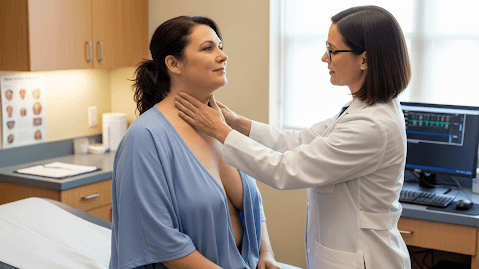
Unmasking the Hidden Signs of Heart Attacks
Heart disease continues to be one of the leading causes of mortality worldwide, and yet many individuals remain oblivious to its subtle warning signs. This oversight is critical, especially as the landscape of heart health evolves with new research and insights. The most commonly recognized symptom of a heart attack—the dramatic chest pain—is often portrayed in films and television. However, the reality is far more nuanced, with many individuals, particularly women, experiencing more subtle cues.
The Most Ignored Heart Attack Symptom
Doctors emphasize that while chest pain holds the spotlight in media portrayals of heart attacks, a significant number of cases present with less obvious symptoms. Discomfort in the chest area may manifest as pressure, tightness, or an overwhelming sense of heaviness. This sensation isn’t always associated with excruciating pain. It might feel more like a persistent pressure in the center of the chest, radiating to the neck, jaw, shoulders, or arms, particularly the left arm. Recognizing these signals is key to seeking timely medical intervention.
Subtle Warning Signs Everyone Should Know
A heart attack can unfold with a range of symptoms that can be misconstrued as minor ailments, further complicating early detection:
Chest Discomfort: Often described as a feeling of pressure, squeezing, or fullness rather than a sharp pain.
Shortness of Breath: A noticeable difficulty in breathing, especially when engaging in physical activity.
Unusual Fatigue: Extreme tiredness, or decreased exercise tolerance in everyday scenarios like climbing stairs or even showering.
Indigestion or Nausea: Symptoms that mimic gastrointestinal disturbances but may actually indicate heart-related issues.
Dizziness or Lightheadedness: A sensation of nearly fainting or feeling unsteady can signal distress.
Cold Sweat: Sweating profusely without an apparent cause can be a red flag.
Pain in Other Areas: Discomfort radiating to the jaw, neck, back, or arms, especially when accompanying chest symptoms.
Why We Overlook These Symptoms
Many individuals tend to dismiss these subtle signals, often attributing them to stress, anxiety, or general tiredness. This is especially true for women and older adults, who may experience symptoms that do not conform to traditional expectations. There’s also a cultural reluctance to seek help due to fears of being perceived as overdramatic or burdening healthcare systems. However, this mindset can lead to dangerous delays in treatment.
The Life-Saving Importance of Acting Fast
It's essential to underscore that heart attacks do not always come with the Hollywood dramatics of severe pain. If you notice any of these subtle yet alarming symptoms, gather the courage to reach out for medical help immediately. Self-diagnosis can be perilous; instead, a healthcare professional can conduct crucial assessments like ECGs and blood tests to determine the root of the issue accurately. Swift action can enhance recovery prospects and significantly increase survival rates.
Heart Health Beyond Immediate Symptoms
While recognizing and responding to symptoms promptly is critical, integrating wellness into your daily life can considerably lower the risks associated with heart disease. Diet plays an instrumental role in managing inflammation and overall heart health. Foods rich in omega-3 fatty acids, such as salmon and walnuts, alongside leafy greens and whole grains, can foster better cardiovascular function.
Practical Dietary Insights for Heart Wellness
Here are some impactful dietary tips:
Incorporate Healthy Fats: Foods such as avocados, nuts, and olive oil can help stop inflammation.
Focus on Whole Foods: Fill your plate with colorful fruits and vegetables to boost heart health and overall wellness.
Limit Processed Sugars: Reducing sugar intake helps decrease the risk of diabetes and heart disease.
Stay Hydrated: Plenty of water is crucial for optimal body function, including your heart.
Emotional and Mental Considerations
Your mental health is just as significant as your physical health. High levels of stress can exacerbate heart problems. Consider incorporating relaxation techniques such as meditation, yoga, or even regular walks in nature. Engaging socially and surrounding yourself with uplifting individuals also empowers heart health by creating a supportive environment.
Heart Health Education: Informed Community Choices
In Salt Lake City, where an active lifestyle is prevalent, awareness of heart health becomes imperative. Community workshops focusing on healthy living, diet planning, and smoking cessation can bolster collective heart health. Awareness campaigns should focus on education—ensuring that everyone can identify signs of a heart attack and encouraging proactive wellness choices.
Final Thoughts
If you suspect that you or someone you know is experiencing these symptoms, do not hesitate for a moment. Seek medical attention immediately. Taking action today is vital for a healthier tomorrow.
 Add Row
Add Row  Add
Add 




Write A Comment